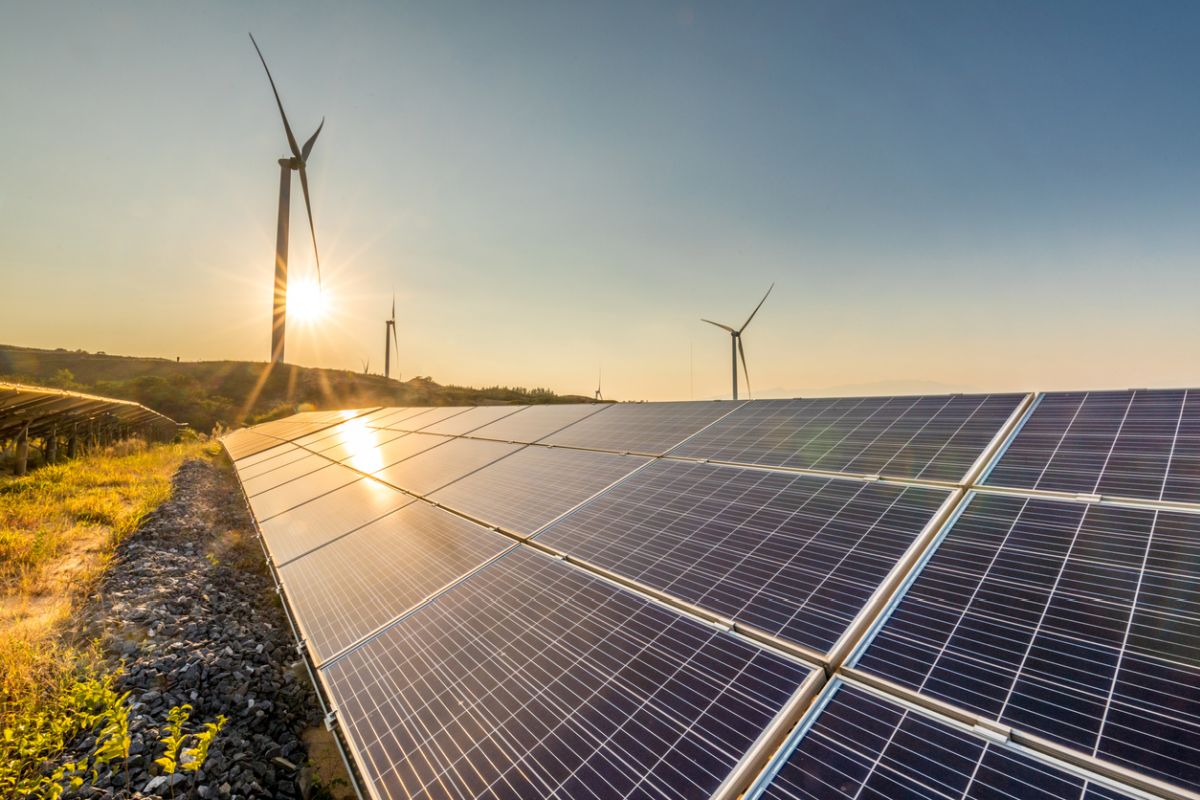Trade with Pakistan can help achieve 2047 goal
Prime Minister Narendra Modi wants India to become an advanced nation by 2047, exactly a hundred years after Independence.
These Meetings extend the ISA Secretariat the opportunity to enhance cooperation with ISA Member Countries, as well as provide Member Countries with the ability to improve collaboration among themselves and mutually identify avenues of cooperation and partnership.

India presides over 5th assembly of International Solar Alliance
India presided over the 5th assembly of the International Solar Alliance that began in New Delhi on October 17 and will continue till October 20, 2022.
Participants from 109 countries will be sharing their experiences towards a low-carbon economy through the promotion of solar energy at the 4-day event under India’s presidency. The 2022 Governance Meetings of the International Solar Alliance (ISA) were initiated in July this year.
The governance bodies of the ISA, namely the Assembly, the Standing Committee, and the Regional Committees offer an integrated approach to governance and decision-making within the Alliance, read the ISA statement.
The Governance Meetings comprise deliberations across the four regions of Africa, Asia-Pacific, Europe and others and Latin America-Caribbean at the Regional Committee. These inform the deliberations of the Standing Committee, comprising the President, Co-President and 8 regional Vice-Presidents.
Advertisement
The deliberations by the Standing Committee go on to inform the deliberations of the Assembly, which is the apex decision-making body of the ISA. Convened at the Ministerial level, the Governance Meetings facilitate in-depth analysis of the ISA’s strategic initiatives, programmes, and activities as well as regional priorities through moderated discussions, added the statement.
Advertisement
These Meetings extend the ISA Secretariat the opportunity to enhance cooperation with ISA Member Countries, as well as provide Member Countries with the ability to improve collaboration among themselves and mutually identify avenues of cooperation and partnership.
“At ISA we are passionate about making a sizable impact on the adverse effects caused by climate change while ensuring that the development efforts are not hampered. The groundwork with multilateral support and multi-stakeholder partnerships has been laid out and with the fifth Assembly, we hope to accelerate actions on global solarisation, scaling and expanding the impact of our interventions across nations, and growing and actualising its existing pipeline for solar projects.
To enable this, the International Solar Alliance aspires to become the go-to platform that brings together resources from around the world to surgically target the challenges faced by our Member Countries in the deployment of solar energy solutions,” said ISA Director General Ajay Mathur.
The International Solar Alliance (ISA) is an action-oriented, member-driven, collaborative platform for the increased deployment of solar energy technologies.
Its basic motive is to facilitate energy access, ensure energy security, and drive energy transition in its member countries.
The ISA was conceived as a joint effort by India and France to mobilize efforts against climate change through the deployment of solar energy solutions.
A total of 106 countries have signed the ISA Framework Agreement. Out of 106 nations, 86 have signed and ratified the ISA Framework Agreement. All member states of the United Nations are eligible to join the ISA.
The United Nations General Assembly (UNGA) has granted Observer Status to the International Solar Alliance (ISA).
It will help provide for regular and well-defined cooperation between the Alliance and the United Nations that would benefit global energy growth and development.
The ISA will help member countries develop low-carbon growth trajectories, with a particular focus on delivering impact in countries categorized as Least Developed Countries (LDCs) and the Small Island Developing States (SIDS).
One of the important products of ISA is One Sun One World One Grid (OSOWOG).
The OSOWOG focuses on a framework for facilitating global cooperation, building a global ecosystem of interconnected renewable energy resources (mainly solar energy) that can be seamlessly shared.
Advertisement